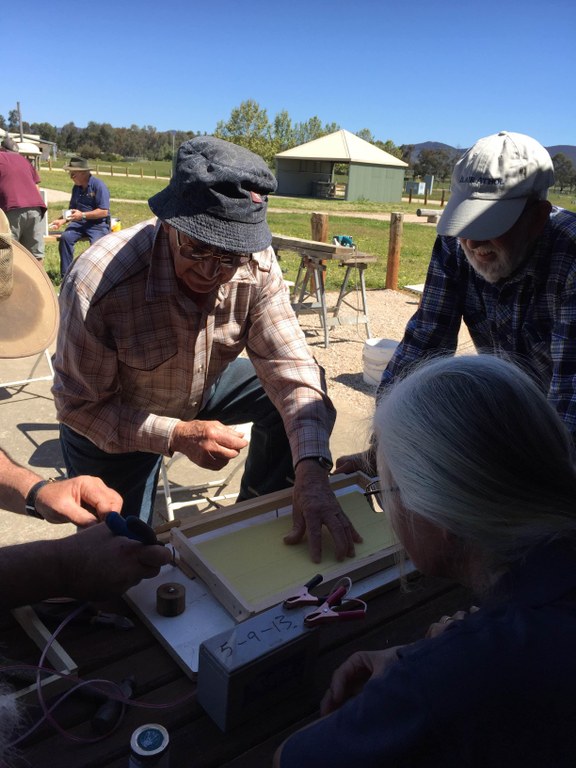
Protecting our pollinators
Published 25 November 2016. November 20 – 27 marks Australian Pollinator week, bringing these usually unnoticed insects to the forefront of peoples’ thoughts, with the goal of supporting and protecting their populations...
November 20 – 27 marks Australian Pollinator week, bringing these usually unnoticed insects to the forefront of peoples’ thoughts, with the goal of supporting and protecting their populations.
With over 75% of flowering plants relying on insect pollinators for reproduction, the decline of their populations is bad news for biodiversity, ecosystems and the security of many of our food sources.
Whether your backyard is a farm, bushland, suburban block or a balcony you can help to create pollinator habitat - plant lots of flowering plants, when pruning, bundle hollow stems together for cavity-nesting insects and don’t use insecticides.
Maintaining and enhancing native vegetation creates valuable habitat, not only for insects but
many thousands of other animals that incidentally transfer pollen as they drink nectar from flowers. These include insects such as beetles, flies, butterflies, ants, wasps, moths, as well as small animals such as birds, bats and marsupials.
But did you know that local native plants are more likely to readily establish and regenerate than those from alternate sources and require less care?
Local native plants not only look like they belong, they help to maintain the health of the local environment. They are likely to be better adapted to the local environment, including the soil and climatic conditions.
Most importantly, they provide habitat for beneficial local native fauna, including pollinators, while keeping the unique character of the local landscape.
If you would like to learn how to harvest your own native plant seeds Watershed Landcare will be holding a mornings seed collection workshop on Saturday, 3 December, at Rylstone. A follow up propagation workshop will be held in the New Year.
For further information or to RSVP contact Agness Knapik, Watershed Landcare Coordinator, on 0435 055 493 or agnes@watershedlandcare.com.au.
As well as our wild, native pollinators, honey bees play an important role in pollination.
Watershed Landcare's Mudgee Bee Group are in the process of setting up community bee hives to provide novice beekeepers with an opportunity to gain experience in handling bees.
The group will be meeting on Tuesday 29 November to introduce bees into the community hives.
Come along and help release the bees, hear from Andrew Kenny about the importance of letting your bees settle into their new homes and meet other aspiring bee keepers.
The Mudgee Bee Group will meet at 6pm at the Straw Bale building, AREC and then celebrate the occasion with an early Christmas supper. Please bring a plate to share and own drinks.
Remember to wear a long sleeve shirt, jeans and a bring a veil if you have one. Please do not wear any perfume or body cream.
For further information or to RSVP contact Claudia Wythes, Watershed Landcare Coordinator, on 0412 011 064 or claudia.wythes@watershedlandcare.com.au.
These events are supported by Watershed Landcare and is a part of the NSW Government’s Local Landcare Coordinators Initiative, supported through the partnership of Local Land Services and Landcare NSW.




